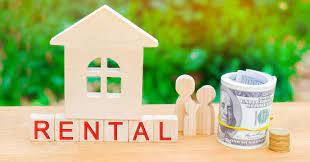Rental Property Investment
Rental property investment can be an excellent way to produce passive income and build lasting wealth. However, whether it is a good investment depends on several factors, including the location, property type, rental demand, and financing options. Listed below will explore the pros and cons of rental property investment to help you make an informed decision.
Pros of Rental Property Investment
Steady Income Stream
One of the most significant advantages of rental property investment is its steady income stream. As long as your property is occupied, you can expect monthly rent payments to cover your mortgage payments and generate profits. The rental income can also increase over time as you increase or refinance your mortgage.
Appreciation in Property Value
Over time, rental properties can appreciate, primarily if they are located in high-demand areas. As the property value increases, so does the equity you have in the property. You can use this equity to invest in other properties, pay off debt, or fund your retirement.
Tax Benefits
Rental property investors can favor several tax benefits and deductions for mortgage interest, property taxes, repairs, and maintenance expenses. You can also depreciate your rental property over several years, reducing your taxable income.
Control Over Investment
Unlike other investments, rental property investment gives you complete control over your investment. You can choose the property type, location, tenants, rental rates, and financing options. You can also improve the property to increase its value and appeal to tenants.
Cons of Rental Property Investment
High Initial Costs
Rental property investment requires a significant upfront investment, including a down payment, closing costs, and ongoing costs, including property taxes, insurance, and maintenance. You may also need to renovate or repair the property to make it suitable for tenants.
Tenant Risks
One of the most significant risks of rental property investment is the risk of bad tenants. Bad tenants can cause property damage, failure to pay rent, or violate the lease agreement, leading to costly legal fees and eviction proceedings. Screening tenants thoroughly and having a solid lease agreement can mitigate these risks.
Market Risks
Rental property investment is also subject to market risks, including economic changes, interest rates, and rental demand. If the rental market experiences a downturn, finding tenants or generating profits may be more challenging.
Management Responsibilities
Rental property investment also requires management responsibilities, including finding and screening tenants, collecting rent, handling repairs and maintenance, and complying with landlord-tenant laws. If you do not have the time, skills, or inclination to manage your rental property, you may need to hire a property management company, which can add to your expenses.
Conclusion
Overall, rental property investment can be good if you have the financial resources, skills, and knowledge to manage the investment correctly. It can provide a steady income stream, appreciation in property value, tax benefits, and control over your investment. However, it also comes with risks and responsibilities, including high initial costs, tenant risks, market risks, and management responsibilities. Therefore, before investing in rental property, it is essential to do your research, consult with experts, and develop a solid investment plan that aligns with your financial goals and risk tolerance.

